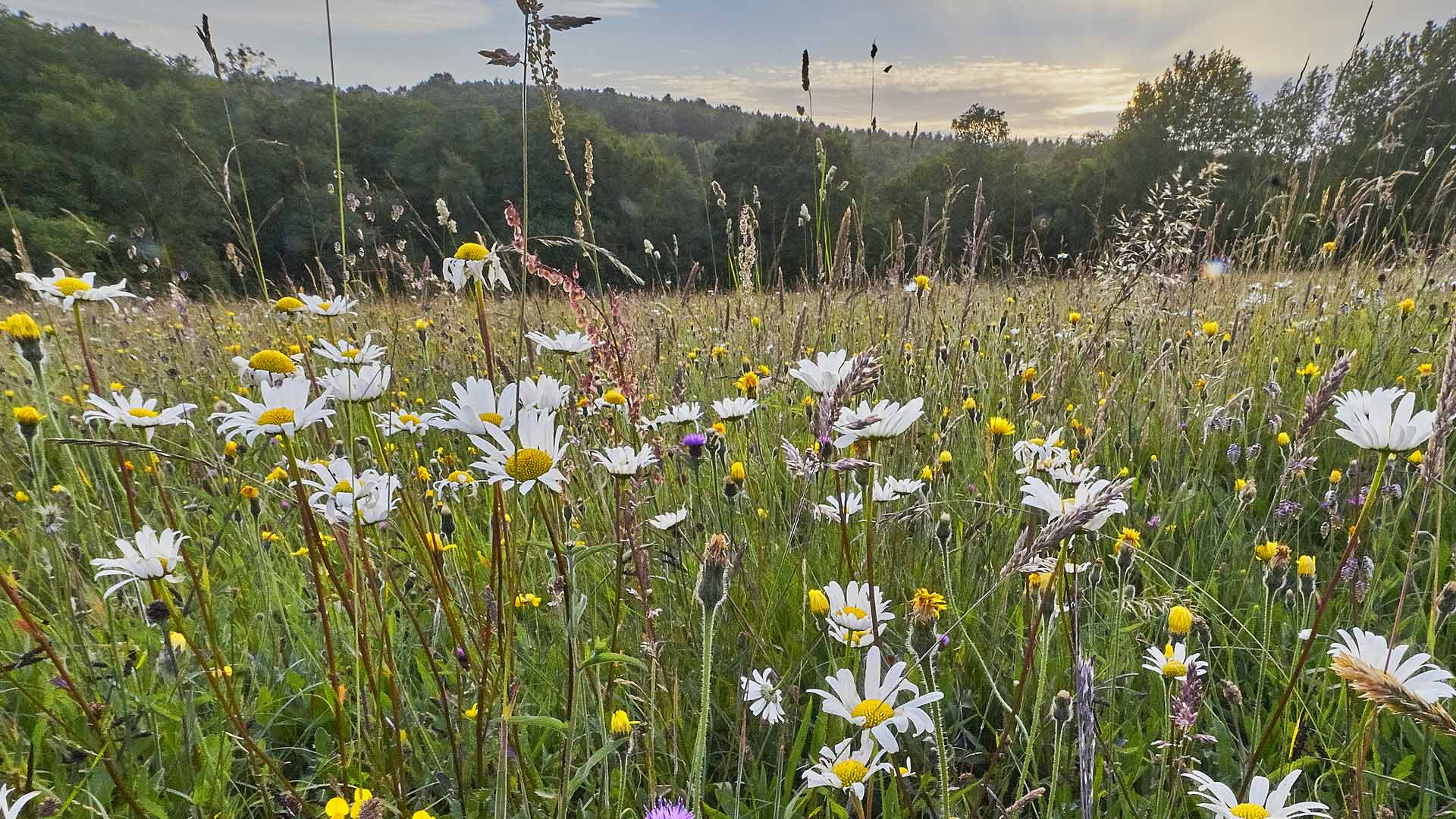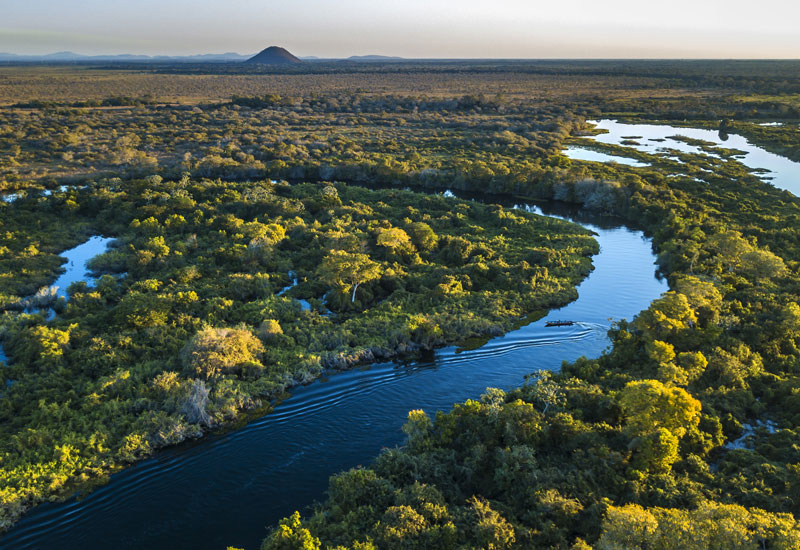Get the right experience for you. Please select your location and investor type.
IMPORTANT NEWS: Transition of investment management responsibilities
First Sentier Group, the global asset management organisation, has announced a strategic transition of Stewart Investors' investment management responsibilities to its affiliate investment team, FSSA Investment Managers, effective Friday, 14 November close of business EST.

Biodiversity and how we select companies
Our investment approach favours companies that provide products and services that meet basic needs, solve difficult problems and seek to do more with less. A result of our investment philosophy means that we avoid companies that have a significant negative impact on the natural environment, as stated in our position on harmful and controversial products and services.
There are no sectors excluded solely on biodiversity grounds. Instead, each company is assessed according to how it is working to reduce the environmental impact of its operations and supply chains, or actively contributing to better environmental outcomes through its products and services.
Examples of companies that meet basic needs are those providing healthy foods, medicines and basic care. We invest in companies that seek to provide high quality products while carefully managing their resources including:
- Slowing the rate of land degradation, land-use change and loss of forests and other natural habitats
- Securing the livelihoods of people at the bottom of the pyramid through financial inclusion and innovative supply chains
Many of our investee companies integrate circular economy principles and support the efficient use of resources including:
- Reducing waste and improving waste management.
- Increasing the use of renewable and cleaner energy technologies
- Reducing greenhouse gas emissions and water, air and other environmental pollution
Included below are a three examples of companies that demonstrate the range of contributions that a company can make, depending on the sector they are operating in. There are many more that can be found by accessing our Portfolio Explorer tool on the Stewart Investors website. Given the interconnected nature of environmental issues such as climate change, biodiversity loss, pollution and water use, we map each company’s products and services to the solutions identified and researched by Project Drawdown. This helps us to understand how the companies we invest in are contributing to environmental outcomes such as forest protection, plant-rich diets, food waste and conservation agriculture.
Natura
Natura is a beauty and personal care company based in Brazil with operations across Latin America and the rest of the world. It was founded with an ethos of sustainability at its heart and is widely regarded as a leader on a whole range of sustainability issues including biodiversity.
In 2020, Natura created a Commitment to Life 2030 Sustainability Vision with 31 targets to tackle the world’s most pressing issues such as protecting the Amazon and embracing circularity and regeneration. Targets include:
- Expand influence on forest protection and foster collective efforts towards deforestation
- Create targets in partnership with industry groups focused on biodiversity
- Have greater than 95% renewable or natural ingredients and greater than 95% biodegradable formulas
- Use regenerative agriculture in deforested areas to reduce use of chemicals and create alternatives to monocultures
- Through the use of new ingredients, create revenue streams that are more economically attractive than deforestation
They also have benefit sharing agreements linked to forest protection and sustainable harvesting with local communities. They have relationships with 48 communities, 41 of which are in the Pan-Amazon region, supporting them in building and maintaining sustainable economies. Some initial results of these initiatives are an increase in Natura’s preservation of the Amazon from 1.8 to 2 million hectares and the launch of a new tool in partnership with MapBiomas and InfoAmazonia to monitor the health of the Amazon.1
Marico
Marico is an Indian company producing and selling health, beauty and wellness products. The company started life selling coconut oil and has stayed close to its roots, even as it has branched out to provide personal care products such as shampoo and other foods such as healthy oats. Marico is the largest buyer of coconuts in India.2 The importance of coconuts to its business has led it to work closely with the smallholder farms in its supply chain.
While coconuts are a monocrop, they are also perennials. Perennial crops have a multitude of important roles to play in stemming biodiversity loss: they produce stable and diverse habitats for a variety of organisms; have deeper root systems which improve soil structure, nutrient cycling and water retention and support pollinators. In addition, perennial crops require less land clearing compared to annual crops and help to protect natural ecosystems such as forests, wetlands and grasslands.
Marico supports coconut farmers through education, access to speciality agribusiness centres and construction of water ponds. It has a long record of encouraging agroforestry, intercropping and other sustainable farming practises to mitigate the effects of monocrops. In doing this, it not only secures its supply chain, it also supports the development of the farmers while contributing to practises that are positive for biodiversity.2
HDFC Bank
HDFC is India’s second largest financial institution. It was set up nearly 50 years ago to provide mortgages to lower income Indians and other low cost products and services to the underbanked (those without full access to banking services) and underserved population.
There is a large wealth divide between the rural and urban populations in India and HDFC has long been focused on addressing the needs of the rural population. This means that farmers are a key customer segment for them. As well as providing banking services, HDFC Bank works closely with farmers to provide economic and educational assistance for agricultural projects. Initiatives include educating farmers in improving productivity in a sustainable way, helping them to purchase modern tools and providing seeds and fertilisers.
Helping small-scale farmers to improve productivity while minimising negative environmental impacts leads to practises that minimise waste, reduce water usage and improve soil fertility. This has a number of important impacts on biodiversity, including protecting natural habitats, conserving genetic diversity and promoting practises that are friendly to pollinators.
Want to know more?
Important Information
The information contained within this material is generic in nature and does not contain or constitute investment or investment product advice. The information has been obtained from sources that First Sentier Investors (“FSI”) believes to be reliable and accurate at the time of issue but no representation or warranty, expressed or implied, is made as to the fairness, accuracy, completeness or correctness of the information. To the extent permitted by law, neither FSI, nor any of its associates, nor any director, officer or employee accepts any liability whatsoever for any loss arising directly or indirectly from any use of this material.
This material has been prepared for general information purpose. It does not purport to be comprehensive or to render special advice. The views expressed herein are the views of the writer at the time of issue and not necessarily views of FSI. Such views may change over time. This is not an offer document, and does not constitute an investment recommendation. No person should rely on the content and/or act on the basis of any matter contained in this material without obtaining specific professional advice. The information in this material may not be reproduced in whole or in part or circulated without the prior consent of FSI. This material shall only be used and/or received in accordance with the applicable laws in the relevant jurisdiction.
Reference to specific securities (if any) is included for the purpose of illustration only and should not be construed as a recommendation to buy or sell the same. All securities mentioned herein may or may not form part of the holdings of First Sentier Investors’ portfolios at a certain point in time, and the holdings may change over time.
In Hong Kong, this material is issued by First Sentier Investors (Hong Kong) Limited and has not been reviewed by the Securities & Futures Commission in Hong Kong. In Singapore, this material is issued by First Sentier Investors (Singapore) whose company registration number is 196900420D. This advertisement or material has not been reviewed by the Monetary Authority of Singapore. First Sentier Investors, FSSA Investment Managers, Stewart Investors, RQI Investors and Igneo Infrastructure Partners are the business names of First Sentier Investors (Hong Kong) Limited. First Sentier Investors (registration number 53236800B), FSSA Investment Managers (registration number 53314080C), Stewart Investors (registration number 53310114W), RQI Investors (registration number 53472532E) and Igneo Infrastructure Partners (registration number 53447928J) are the business divisions of First Sentier Investors (Singapore).
First Sentier Investors (Hong Kong) Limited and First Sentier Investors (Singapore) are part of the investment management business of First Sentier Investors, which is ultimately owned by Mitsubishi UFJ Financial Group, Inc. (“MUFG”), a global financial group. First Sentier Investors includes a number of entities in different jurisdictions.
MUFG and its subsidiaries are not responsible for any statement or information contained in this material. Neither MUFG nor any of its subsidiaries guarantee the performance of any investment or entity referred to in this material or the repayment of capital. Any investments referred to are not deposits or other liabilities of MUFG or its subsidiaries, and are subject to investment risk, including loss of income and capital invested.

